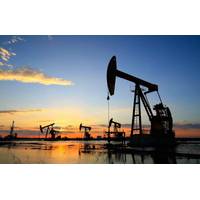Exxon's $19 Bln PNG Plant could change country's fortune
ExxonMobil's $19 billion liquefied natural gas (LNG) project in Papua New Guinea, which is shipping its first cargo, is set to dramatically transform one of Asia-Pacific's most unstable countries, for better or for worse.
The LNG venture, which is expected to produce more than 9 trillion cubic feet of gas over 30 years, is the largest private investment in the South Pacific nation's history.
ExxonMobil is relying on projects like this one for much-needed production growth, while the Papua New Guinea government hopes it might double its $15 billion dollar economy, now slightly larger than Botswana's.
But sharing the spoils of resource projects has previously torn apart a country that is seen as one of the most corrupt in the world, and with a political system that produced two rival governments claiming to be in charge for much of 2012.
And as the first cargo of clean-burning LNG is shipped to Japan, the government has yet to fully identify which landowners will receive royalties, a critical holdup that has raised the spectre of unrest in the impoverished highlands where locals are anxiously awaiting a historic windfall.
The big question now is whether the project will prove to be a blessing or a curse, said Bryant Allen, an expert on Papua New Guinea at the Australian National University, who helped Exxon in identifying and compensating affected landowners there.
"If the Papua New Guinea government could find a way to get those funds to flow back into the education system and back into the health system and fix up all those schools, this could be fantastic for PNG," he said.
"But I just don't see it happening at the moment."
Other resource projects in Papua New Guinea have previously stirred violence or even civil conflict, and even when up and running there is a risk of money being squandered or pocketed by officials.
A copper mine once operated by Rio Tinto became a central issue in a bloody secessionist conflict in the semi-autonomous Bougainville region, while other projects have been blamed for environmental damage and human rights abuses.
DESPITE ALL THE POLITICAL NOISE
ExxonMobil's agreement with the government sets aside a 2 percent royalty for landowners, to be held in trust by the government until they have vetted the clans that claim to own the land.
Petroleum and Energy Minister Nixon Duban could not be reached for comment by phone or email, but he told the Australian Broadcasting Corporation earlier this month that he hoped most of the clan-vetting would be completed by Christmas.
The project contains unprecedented potential upside for Papua New Guinea. Its economy is forecast to hit a record 21 percent growth rate in 2015 on the back of the project, with the government expecting to bank 1.7 billion to 2.2 billion kina ($621 million to $803 million) per year until early next decade.
That figure will soar to 4.5 billion kina, boosting total revenue by 40 percent from 2014 before construction of a second $12 billion LNG project, expected to boost the economy further when work begins around 2017 or 2018.
ExxonMobil and its partners - Oil Search Ltd, Santos Ltd, Japan's Nippon Oil Corp and the PNG government - are looking to expand the plant, but have yet to decide where to source the additional gas.
ExxonMobil PNG Ltd Managing Director Peter Graham said that he has faith that the government would seize on the project's potential to radically transform Papua New Guinea.
"I am really proud of what we've contributed throughout four years of construction. We're ahead of schedule - and there aren't many resource projects in the region that can say that."
He said he was confident of the government's ability to distribute funds, adding that a transparent benefit sharing and distribution process was critical for long-term security.
RISK OF TROUBLE
Not everyone, however, is so sanguine about its prospects.
The highland valleys where the project is located are among the most isolated locales on Earth and deciding who is entitled to compensation is a hugely complicated task made more so by competing land claims and complex local concepts of ownership.
On top of this Papua New Guinea is ranked 144th out of 177 nations on Transparency International's 2013 Global Corruption Index, putting it just ahead of Zimbabwe.
"Right now there's an expectation that wealth will come. My point of view is that if people don't see something within 12 months of the startup, there will be big trouble," said Grant Worner, a former CEO of New Guinea Energy, an energy explorer.
The use of violence to settle disputes is also woven into the tribal fabric and assault weapons are ubiquitous.
The 700 km PNG LNG pipeline is mostly buried underground, though some experts warn of its vulnerability to sabotage.
In 2010 villagers attacked the plant site, burning heavy machinery and using high-powered weapons to damage construction equipment over a land dispute, according to a media report, and in March this year at least four people died in inter-tribal fighting in the highlands surrounding the gas fields.
"I've seen these guys in the bush and they can move through the bush at an amazing speed, so if they decided to take on their government because they were so cranky about it, it could be quite a nasty little war up there at some stage," Allen of the Australian National University said.
(Additional reporting by Sonali Paul in MELBOURNE and Aaron Sheldrick in TOYKO; Editing by Ed Davies)





